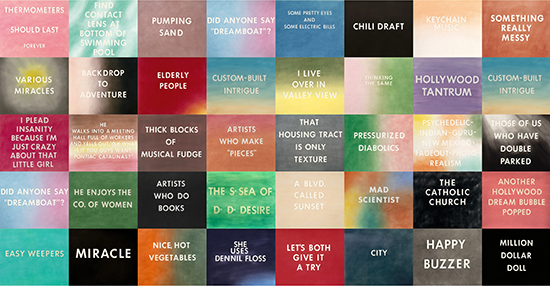GPT for Arts & Humanities Instructor: Valentin GolevProgram: Art & Curatorial Practice, Critical Philosophy, History, Design & Worldmaking, Transdisciplinary StudiesCredit(s): 2Date: June 5th, June 19th, July 3rd, July 17th, July 31st, August 14th, August 28th, September 11th. Time: 14:00-16:30 ET

DESCRIPTION: Designed for humanities students with little to no programming background, “GPT for Arts & Humanities” is an 8-session Workshop that focuses on the text-based research in humanities leveraging LLM technology (Large Language Models, most notably ChatGPT and GPT-4, colloquially accepted as the most widely useful contemporary form of “Artificial Intelligence”).
The Workshop offers an accessible introduction to key LLM-related technologies and products, such as ChatGPT, GPT API, and vector embeddings, which support a broad range of useful applications. By emphasizing practical, hands-on use-cases, the Workshop demystifies complex concepts, enabling participants to amplify their research capabilities. Topics covered include the fundamentals of LLM, constructions of topic-specific chatbots, techniques for analyzing expansive PDF archives, and innovative approaches to conceptual research and translation.
To ensure that the Workshop is aligned with the unique research needs of our participants, we’ll ask each of them to complete a brief questionnaire about their background and interests. This will assist us in customizing the Workshop material for maximum relevance and impact.
Participants will be required to develop a LLM-based project that showcases their research object. This project will serve as the basis for their course assessment, providing a practical application of the skills and knowledge gained throughout the seminar. Students will be actively supported while developing the project. The LLM-related parts of the assignment, as well as the observational essay on the others’ interaction with this project, will be the object of the final evaluation.
In this Workshop, participants will learn:
– A variety of ways to leverage LLMs for research and presentation of that research
– How to use prompt-engineering to get better quality results with more control
– How to present their research topic in a way that is available for LLM to analyse
– How to create a GPT chat-bot, or another kind of interactive tools, to present one’s research for others in an engaging and interactive way
– Basic programming skills, and the way to use ChatGPT to write code for both personal use, and the use of others
– Basic concepts and techniques for LLM usage: from tokens, embeddings and quantization to prompt-chains, RAG and fine-tuning
– Critical and technical concepts helpful for understanding and working around the limitations of LLM-based research approaches
IMAGE: Ed Ruscha, Various Works, 1974–1981.
To see The New Centre Refund Policy CLICK HERE.
To see The New Centre Refund Policy CLICK HERE.